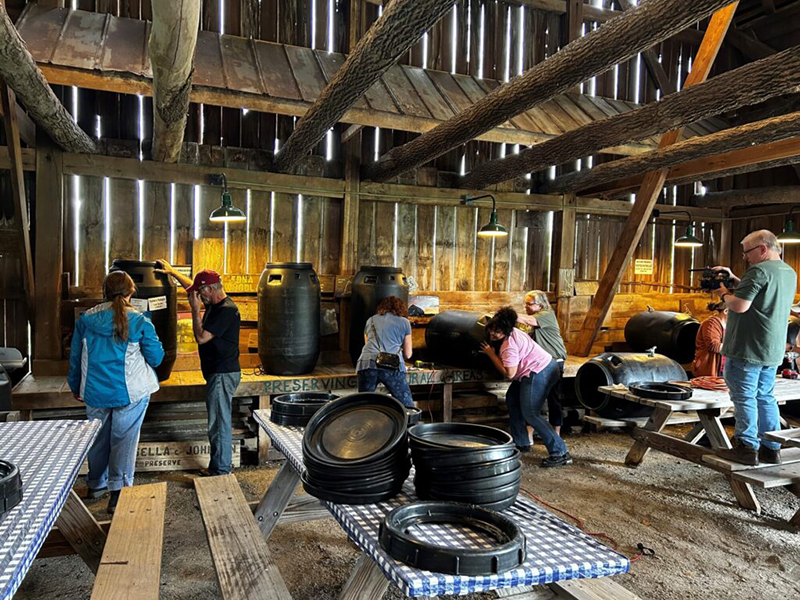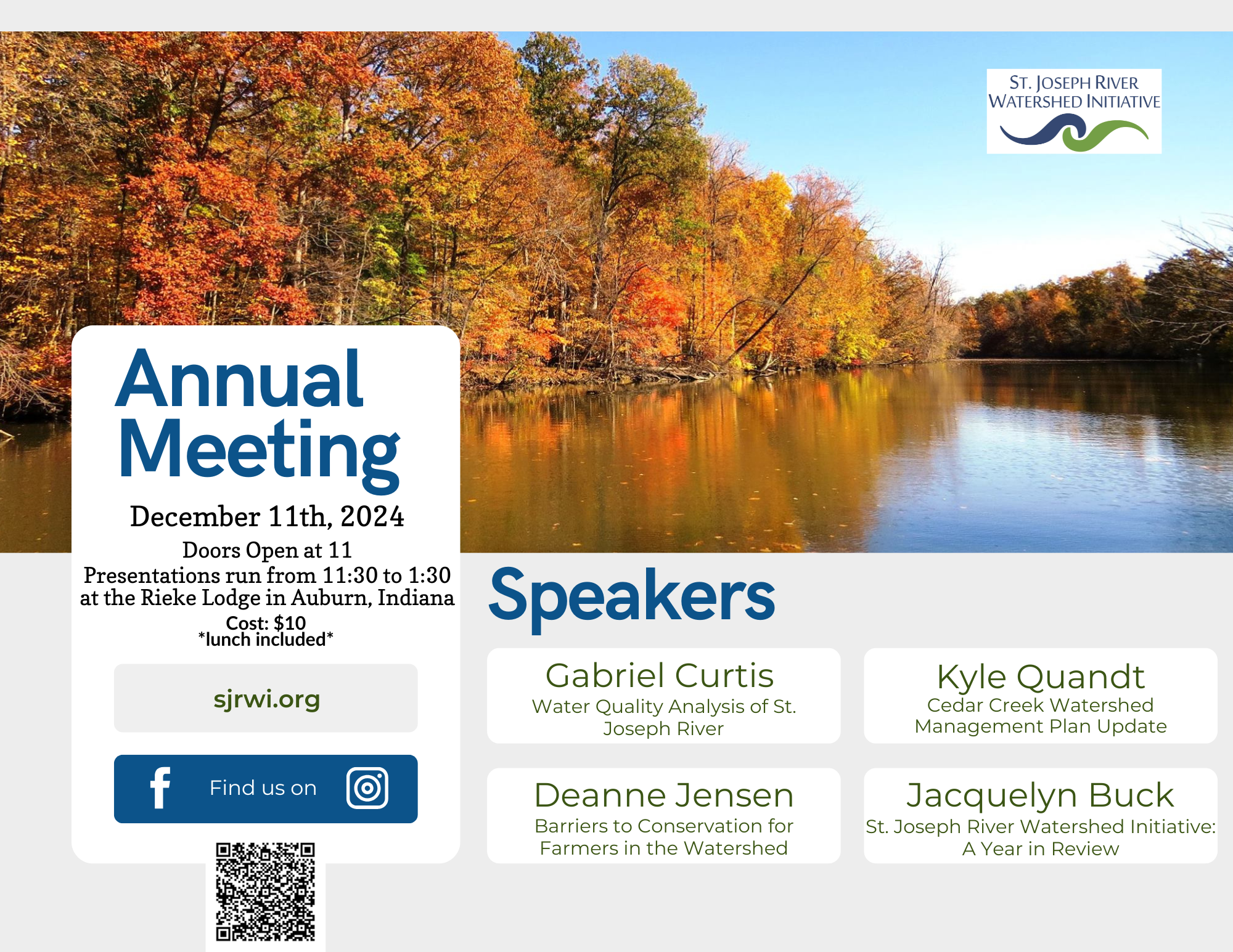events
Events
MAY
DIY Rain Barrel Workshops
Saturday, May 11 | 9a and 10:30a
Tom & Jane Dustin Preserve, 1992 Chapman Rd., Huntertown, IN
Cost: $20.00
Registration is required. To register click here!
 Everyone can help protect water quality in our streams and rivers!
Everyone can help protect water quality in our streams and rivers!
Rain barrels collect rainwater and decrease the amount of stormwater runoff that leaves your property. Using rain barrels is one way to reduce your household's impact on local waterways and become a good steward of our precious water resources.
The St. Joseph River Watershed Initiative has partnered with the Maumee Watershed Alliance and ACRES, Inc. to offer two rain barrel workshops on May 11, 2024, as part of their Cedar Creek Watershed project funded through a grant from the Indiana Department of Environmental Management.
Learn about local water quality and make your own rain barrel.
JUNE
Hoosier Riverwatch Workshop
Saturday, June 9 | 9a-4p
Eckhart Park
Do you wonder about the quality of water in a stream near you? Would you like to build your confidence as a volunteer monitor and become a real-life citizen scientist? Any citizen or educator, 18 years of age or older can attend this FREE workshop and learn to monitor stream health by assessing habitat, biology, and chemistry.
What to Expect
Come prepared to get your feet wet and have fun!
This basic training workshop will introduce citizens and educators to the basic concepts of watersheds, water pollution, and the ecological integrity of streams. It will include indoor classroom sessions and outdoor fieldwork and will provide hands-on training on how to monitor these components of wadable streams:
Physical - Habitat and flow
Chemical - Oxygen, pH, and nutrients
Biological - Benthic macroinvertebrates (the bugs)
Participants will receive a printed training manual, a Hoosier Riverwatch certification card, and access to the Hoosier Riverwatch online database to enter water quality data. Participants will also become eligible to use Hoosier Riverwatch monitoring equipment, teach Hoosier Riverwatch monitoring techniques to others, and take advantage of advanced training workshops.
Registration required. To register, please fill out our form!
Flow the St. Joe
Saturday, June 29 | 9a
Riverside Garden Park- Leo Cedarville (14701 Schwartz Rd, Grabill, IN 46741)
Cost: $30.00
 Join us for an exciting day of fun and adventure at Riverside Gardens Leo-Cedarville, Schwartz Road, Grabill, IN, USA during the Freedom Festival. Get ready to immerse yourself in the beauty of nature and experience the thrill of flowing down the St. Joe River. Whether you're a seasoned pro or a first-time floater, this event is perfect for everyone. Grab your friends and family, bring or rent a kayak, and get ready to make unforgettable memories. Don't miss out on this incredible opportunity to relax, unwind, and enjoy the great outdoors. See you there!
Join us for an exciting day of fun and adventure at Riverside Gardens Leo-Cedarville, Schwartz Road, Grabill, IN, USA during the Freedom Festival. Get ready to immerse yourself in the beauty of nature and experience the thrill of flowing down the St. Joe River. Whether you're a seasoned pro or a first-time floater, this event is perfect for everyone. Grab your friends and family, bring or rent a kayak, and get ready to make unforgettable memories. Don't miss out on this incredible opportunity to relax, unwind, and enjoy the great outdoors. See you there!Flow the St. Joe Sponsors





December
Annual Meeting- POSTPONED

